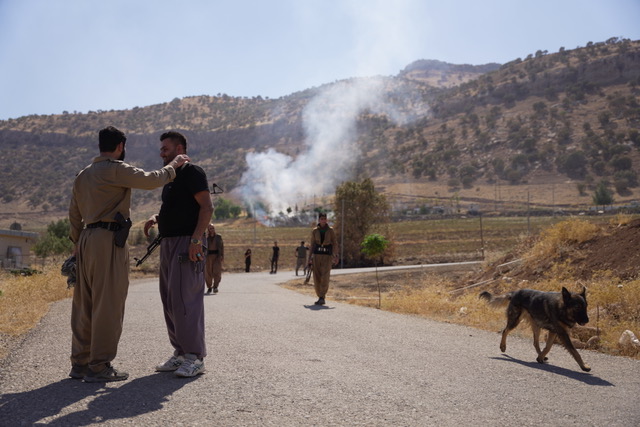Fractious Iranian Kurdish dissidents pose challenge for KRG stability
A splintering of opposition groups in Iraqi Kurdistan is complicating efforts to meet Iranian demands for secure borders in order to avoid more drone and missile attacks.
SULAIMANIYA - Iranian Kurdish dissidents based in Iraqi Kurdistan are engaged in a destabilizing internal conflict that could lead to a more confrontational posture toward Iran, with the potential for provoking more cross-border attacks by Tehran's military forces.
The Komala party, one of the main dissident groups, has generally maintained a policy against using Iraqi Kurdistan as a staging area for direct action against Iran. But now the party has split into three factions over a variety of disagreements, including whether to settle in refugee camps or maintain border bases, and how to structure alliances with other dissident groups.
“I think the Iranian Islamic Regime is very happy about these intra-Kurdish conflicts,” said an official from the Komala Party of Kurdistan, one of the three factions. “Certainly, they would love to see us kill one another and weaken ourselves."
The disarray comes as Tehran is threatening to take new military action if Iraq's federal government and Kurdistan Regional Government (KRG) do not meet a mid-September deadline to disarm the dissident groups and move them to residential camps away from the border.
“If the deadline passes and they remain armed or carry out any operation, our operations against those groups will definitely reoccur more severely,” said Major General Mohammad Hossein Baqeri, Chief of Staff of the Iranian Armed Forces, according to a report by the state-backed Tasnim news agency.
Login to your account
Subscribe for news access
Annual News subscribers receive access to the full archive of Iraq Oil Report articles.





